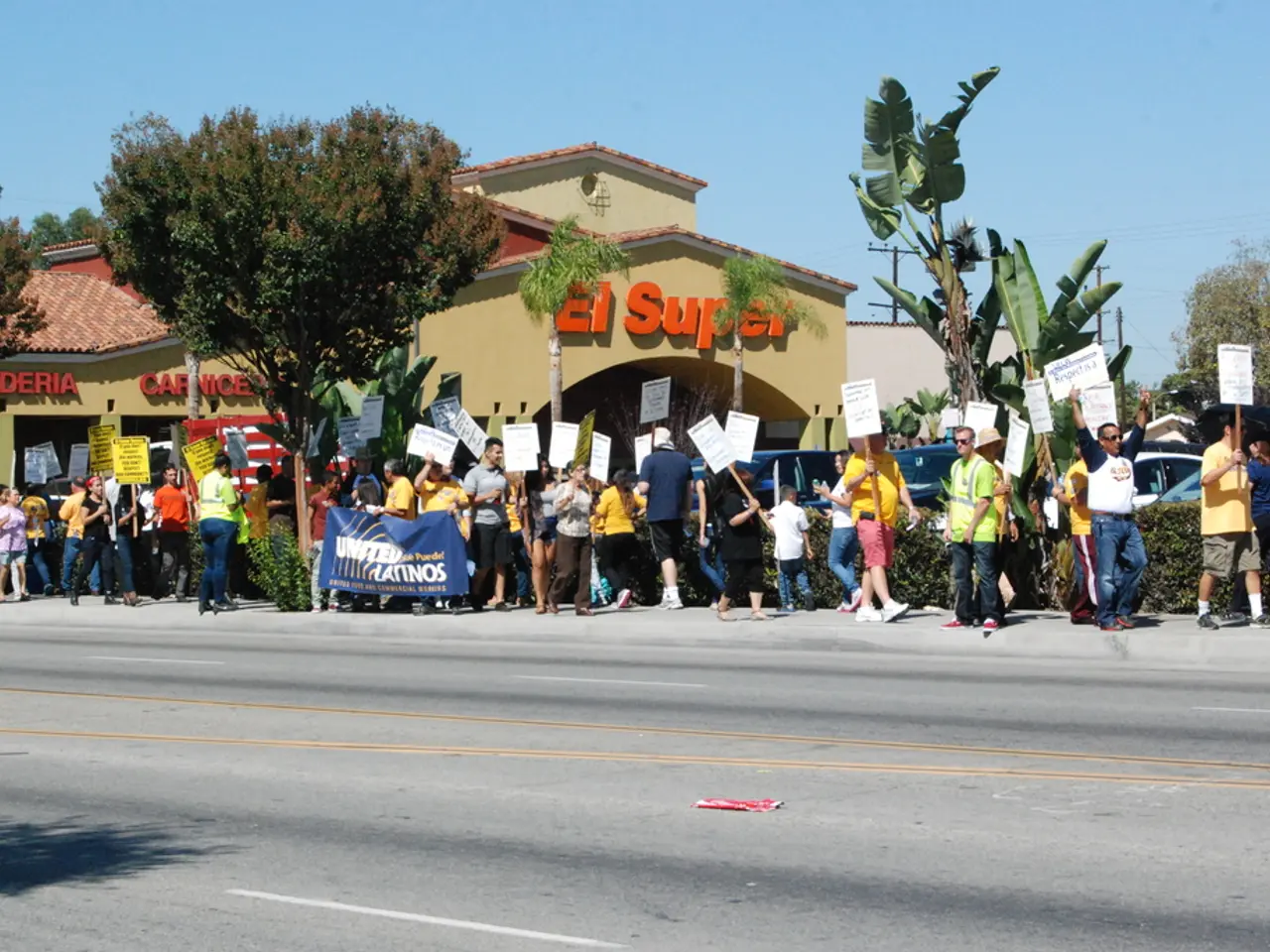Majority of survey participants believe that numerous individuals refrain from openly sharing their thoughts due to fear of repercussions
In recent times, there has been a growing concern over the suppression of free speech in Germany, particularly regarding opinions linked to the Israel-Palestine conflict. This suppression is evident in the political and social tensions surrounding the conflict, with a significant crackdown on pro-Palestinian speech and activism.
The European Legal Support Center (ELSC) has documented 766 incidents of anti-Palestinian repression in Germany, pointing to systemic criminalization and intimidation efforts. Media freedom is under strain, with 81 incidents aimed against media and journalists, including smear campaigns, firings, police action, and detentions related to pro-Palestinian reporting.
Cultural repression accompanies the political crackdown. Cultural centers and events associated with Palestinian solidarity or alternate Jewish voices face funding cuts, cancellations, and suppressive administrative actions. The general public discourse is highly sensitive, with peace or anti-war protests related to Gaza being frequently framed by the German state as potentially antisemitic, creating a chilling effect on free expression.
Recent surveys indicate that pro-Palestinian activists, students, artists, and journalists engaged in Palestine-related issues face more intense suppression. These groups report intimidation, police violence, censorship, and social stigmatization branded as antisemitism by German authorities.
The issue of freedom of speech has the potential to become as defining as migration since 2015 and COVID-19 since 2020. A good culture of debate and acceptance of a broad range of opinions is crucial for the majority of the population to believe that freedom of speech is fully guaranteed in our country.
Interestingly, East Germans (59%) are more likely to have had an experience where they felt they could not express their opinion freely compared to West Germans (53%). Among party supporters, voters of the AfD (76%), BSW (69%), and the Left Party (65%) have felt they could not express their opinion freely. On the other hand, voters of the CDU/CSU (47% yes to 47% no) and the FDP (45% yes to 44% no) are divided on this issue.
Two-thirds of those under 30 have experienced feeling unable to express their opinion freely, compared to only 38% of those over 70. In the past eight months, the number of those believing some people do not express their opinion due to fear of consequences has increased by six percentage points. A staggering 84% of those surveyed believe that there are people who do not express their opinion due to fear of consequences.
Politics, media, and society as a whole should take the issue of freedom of speech seriously. The state of freedom of speech, as reflected in this question, has high agreement regardless of socio-demographic characteristics. Agreement with this question is high among party supporters, ranging from 77% among voters of Alliance 90/The Greens to 92% among voters of the AfD.
In summary, recent surveys and documented incidents paint a picture of free speech suppression in Germany that disproportionately affects pro-Palestinian perspectives and those critical of Israeli government policies, coupled with systemic institutional censorship and intimidation, especially in the media and cultural sectors. This repression reflects underlying political and demographic divisions primarily centered on the ongoing Middle East conflict and German domestic security and antisemitism policies.
- The suppression of free speech in Germany, particularly in regards to opinions linked to the Israel-Palestine conflict, is also evident in the realm of policy-and-legislation, as shown by the European Legal Support Center's documentation of 766 incidents of anti-Palestinian repression.
- The issue of free speech, notably the suppression of pro-Palestinian perspectives and those critical of Israeli government policies, has become a focal point in German politics, media, and society, as evidenced by recent surveys and incidents, reflecting underlying political and demographic divisions.








